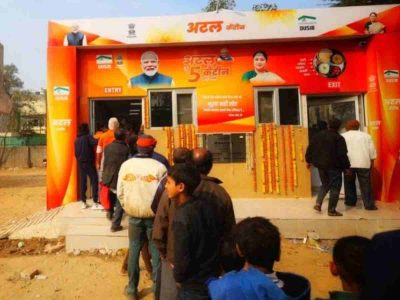Indian students: For many young Indians, studying abroad symbolises not just academic ambition but escape—into independence, global exposure, and better opportunities. Over the years, this aspiration has only intensified, with thousands of students leaving home each year in search of a future their own country seems ill-equipped to offer.
But once abroad, that glossy dream often gives way to far grimmer realities. From predatory landlords to crushing loneliness, exploitative employers to subtle and overt racism, the lived experience of Indian students in foreign countries is riddled with challenges. Through conversations with students across the UK, Canada, Italy, and beyond, Patriot pieces together the emotional, financial and social cost of that coveted foreign degree.
Accommodation: costly, crowded, and cold
Finding decent housing is one of the biggest hurdles for international students.
Amrit, a student at Durham University, described how landlords exploit students by raising rent from £100 to £180 within a week. “They know students can’t afford to leave, so they take advantage,” he said. He added that broken appliances are often left unfixed for months, and some houses are so poorly built that they trap no heat during winter. Students also worry about utility bills, especially in homes where rent doesn’t include them.
Mehak, studying in Hamilton, Canada, said it’s difficult for both locals and international students to find decent housing. “Canada is expensive,” she said, adding that even the better accommodations are out of reach for someone with a part-time job. Many students, including herself, are forced to live in cramped or substandard housing just to keep costs manageable.
Sanyat Shirke and Parth Allahbadi, students from Anglia Ruskin University, said they don’t feel their accommodation is worth the high rent. Parth explained that finding a place involves months of online searches, conversations with current tenants, and timing the move with outgoing renters. “Cambridge is a student town, so landlords keep rents high,” he said.
Sanyat shared how his room lacked privacy because the blinds were broken. “Anyone on the street could see into my room,” he said.
Iqbal Siddqui, an Indian student in Milan, added that hostel accommodation is usually reserved for scholarship recipients. “Others must rent rooms, which are very expensive,” he said, noting that shared rooms often cost €600–€800 per month.
Also read: Chandni Chowk beautification project failed due to poor planning
The search for stable income
With high rent, tuition, and grocery bills, students abroad often take part-time jobs—but restrictive visa conditions limit them to just 20 hours a week.
Parth, now in Rama Township, Canada, recalled that he struggled for months to find work after moving. “The other escape route for students is cash-in-hand jobs, which are illegal,” he said. According to him, these jobs are often offered by South Asian business owners who exploit workers, paying as little as $8 an hour—far below the $17 minimum wage.
Aryan Multani, a student from Georgian College, said he had been hired for a cash job and worked for a week without pay. The employer claimed he hadn’t done a good job, rehired him, and once again refused to pay. “They said they found someone else,” he recalled.
Amrit pointed out that many local businesses prefer hiring locals over students, who are bound by class schedules. Employers often prefer workers who can show up anytime, and some restaurants pay in cash while underpaying their student employees.
Astha Varghese, a student at the University of Exeter, said, “It’s hard to find part-time jobs that fit our visa requirements. The pay is usually minimum wage, and with rent and groceries, you have to budget very tightly.”
Parth added that job opportunities often come down to luck, not experience. He once worked at a cinema that gave him no shifts for two months. “It’s a student area. Watching a movie is often out of budget for students, so working hours were close to none,” he said, adding that he earned nothing while still having bills and rent to pay.
Mehak, who worked at an Indian restaurant, described how exhausting it was to balance full-time studies and part-time work. “Trying to find time for yourself while doing all that is close to impossible,” she said.
The burden of racism
Sanyat also drew attention to an uncomfortable truth—racism remains a persistent issue across many Western countries.
He observed that Indian managers abroad often treat Indian students unfairly. “They give us the work no one else wants to do,” he said, adding that they exploit the fact that students are desperate to keep their jobs. He recounted an incident where, despite following all protocols, he was screamed at for taking a sick leave.
Parth alleged that racism exists even within the Indian student community, particularly between students from different regions of India. “Managers often make us do night shifts because no one else wants them,” he said.
Mehak said she had experienced both subtle and overt racism in Canada. “It does affect you when you get treated badly for being from a different country,” she said. What troubled her even more was how people had described Canada as one of the most welcoming countries. “That wasn’t true in my case,” she said.
Aryan also faced discrimination. He shared that many of his early friendships were marred by racially motivated jokes. “Even my first manager treated me poorly, just because I was Indian,” he said.
Would they still go abroad?
When asked whether they would have stayed in India if similar courses had been available, Parth and Sanyat—both film studies students at Anglia Ruskin University—acknowledged that India lacks the infrastructure.
“There are similar courses in India, like at the Film and Television Institute of India, but the curriculum and equipment are nowhere near what’s offered abroad,” said Parth.
Sanyat said, “Whistling Woods International in Mumbai focuses on film production, but equipment standards are poor. My father, a guest lecturer there, told me that the institute acquired 4K cameras for the first time in 2023; before that, it was still using 720p cameras.”
Samvardhan Tiwari, a law student at Delhi University, aspires to pursue an LLM abroad. He hopes to work in international arbitration and dispute resolution, particularly in the corporate sector. “UN consultancies and international law firms—especially those in the UK and Singapore—are mostly accessible to those with foreign degrees,” he said.
He explained that in India, two-year LLMs are often seen as a sign of academic inclination, making it harder to get corporate roles. “Abroad, the courses are more diverse and practical. In India, the subjects become too theoretical,” he said.
Also read: Boating at Delhi’s Purana Qila now close to reality, trials begin
Is change possible at home?
Due to the perceived lack of opportunities and diversity in Indian higher education, many students feel compelled to leave behind their families and familiar surroundings in pursuit of their goals. Once abroad, they face an overwhelming set of challenges—financial, emotional and social.
Would this still be necessary if India reformed its graduate and postgraduate curriculum? Most top universities in the country, including Delhi University, offer mostly traditional degrees. Seats in innovative or specialised courses remain limited.
It is this vacuum—of opportunity, infrastructure and exposure—that continues to drive students out of the country, even if it means braving poor housing, job struggles and discrimination.





